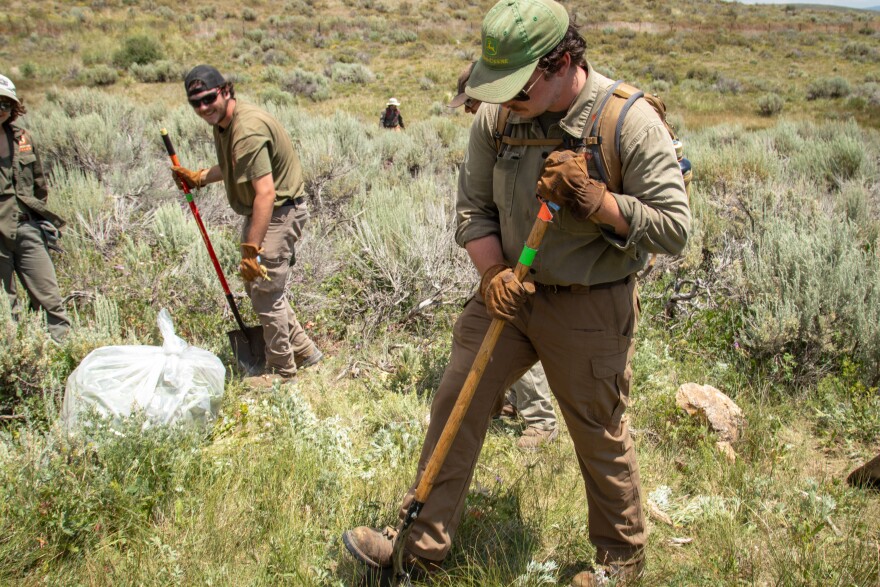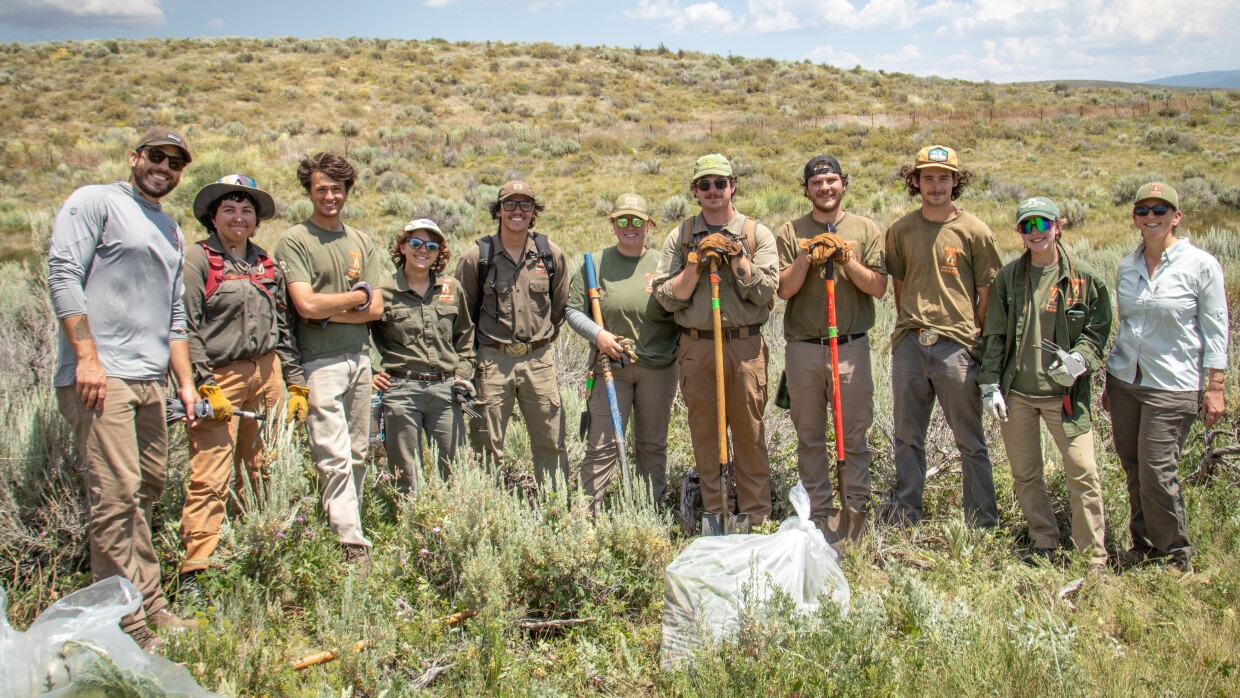Would you dig weeds for 10 hours a day? That’s a hard pass for many, but it’s what a lot of 20-somethings sign up for with the Utah Conservation Corps. The program says it's training the next generation of America’s workforce.
Standing among the sagebrush off a Park City trail, two crews shovel out invasive plants like scotch thistle and houndstone. They outcompete native plants, and if this team can get them now, the seeds won’t spread.
The nine young women and men cut the weeds off at the root. They wore long pants and hats in varying shades of green and brown to ward off the hot July sun.
It’s grueling, but rewarding, work.

“You are out doing this work that is benefiting so many people who use our public lands,” Kody Kitchener said. “But then you also have this internal shift of like, ‘Wow, I grew a lot. I did some really tough things, and I came out the other side a lot stronger.’”
Kitchener started working on a crew himself and ended up enjoying it so much that he stayed. He is now the northern technical coordinator for the Utah Conservation Corps’ Logan office. They also have offices in Moab and Cedar City.
Usually, it’s eight days of work with four days off. Crews do everything from building trails and fencing to wildfire mitigation and watershed restoration. This is an AmeriCorps program, which grew out of the Great Depression-era Civilian Conservation Corps. Like then, this Utah job isn’t just employment, it’s also about giving people an opportunity.
“We want to make sure people are getting a breadth of experience and learning new things,” said Temis Taylor, the AmeriCorps program manager.
At the end of a successful term, she said corps members are eligible for an education award of up to $7,395, depending on the length of their term. It can be used for things like qualifying student loans, school tuition, books and room and board.
Twenty-six-year-old Lauren Ivan said she’s gotten certifications through the program that would have been expensive to get on her own. She’s a crew lead, and they receive a Wilderness First Responder certification and a Non-Commercial Pesticide Applicator license. They also do training that’s part of the U.S. Forest Service curriculum.

As a leader, Ivan made sure the team stayed hydrated as they worked in Park City. The redhead paid particular attention to sunscreen since she has fair skin.
Compared to some of the other conditions they work in, this was a mild day. A workday can be anything from 105 degrees on the White River to frigid temperatures on the Jordan River. Ivan’s toughest day was a snowy one in Farmington Bay on the Great Salt Lake.
“It was just freezing. We were using these, like gigantic weed whipper-type thingies. They're called brush cutters,” she recalled. “And my hands were so cold I couldn't even tell if I was pushing the trigger or not. Yeah, it was pretty brutal.”
What got Ivan through was the thought of a hot slice of pizza afterward, and her fellow workers.
“We were immediately all laughing once we were warm again. If you can laugh about things, I think that there's not ever a hard day that you can't get through. And all of the people I have met, we find a way to laugh about things.”
These co-workers spend 24/7 together. When they’re done here today, they’ll go back to their tent camp to eat, hang out and sleep. With a laugh, Ivan admitted that people tell her that she snores.
You’d think they’d get tired of each other, but that doesn’t seem to be the case. They joked and chatted as they worked.

Even as he shoveled out thistle with the sun in his eyes, 20-year-old Ryan Dillon couldn’t recommend this job enough. This is his first season, but he thinks he’ll do it for four or five years.
“Being out here working in the elements, it teaches you that you can work hard and you can work really well too,” the Utah State University graduate said. “I really hope to get involved with the research side of climate science and earth science, but that's a little ways off.”
This work has also helped 23-year-old Justus Haney find a purpose and his way in life. Before the Utah Conservation Corps, Haney said he floated around and worked a bunch of entry-level jobs. Now he hopes to land a job with the Utah Department of Natural Resources after he finishes up the year.
“Our work here is not just like coming out and swinging a tool for 10 hours, like you are actually benefiting the ecosystem around you,” he said.

_







